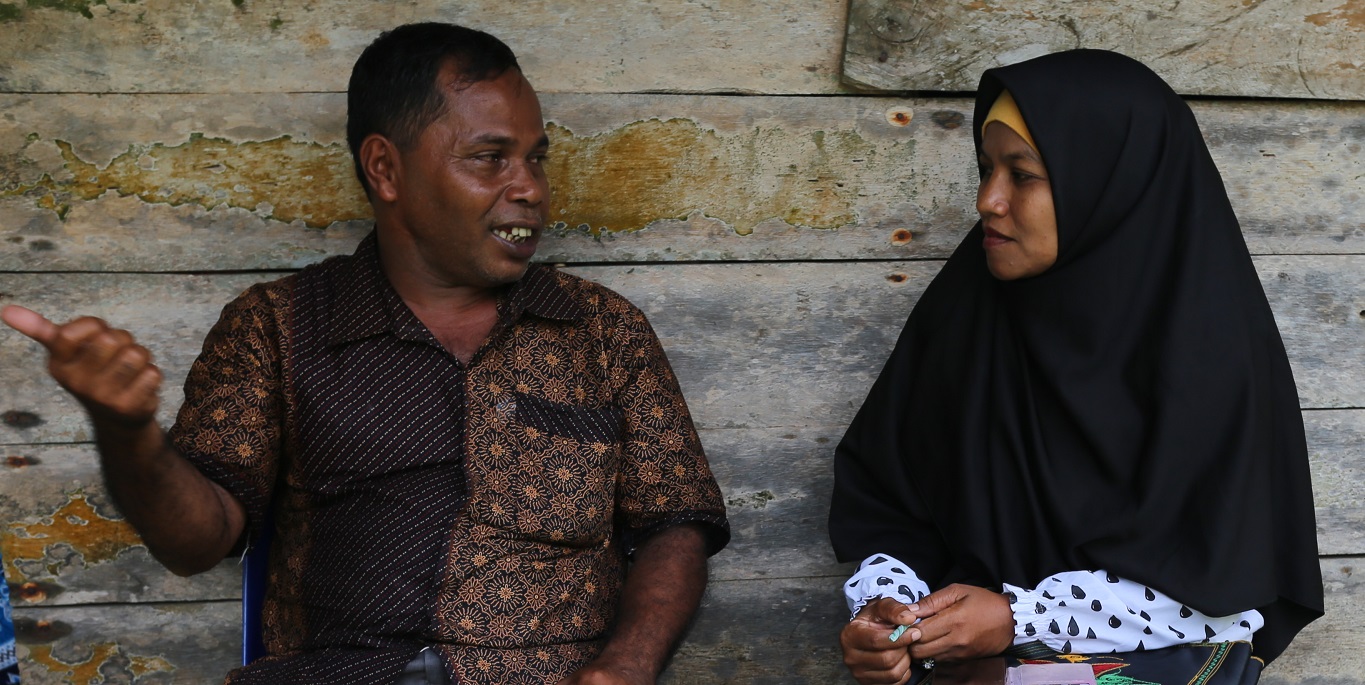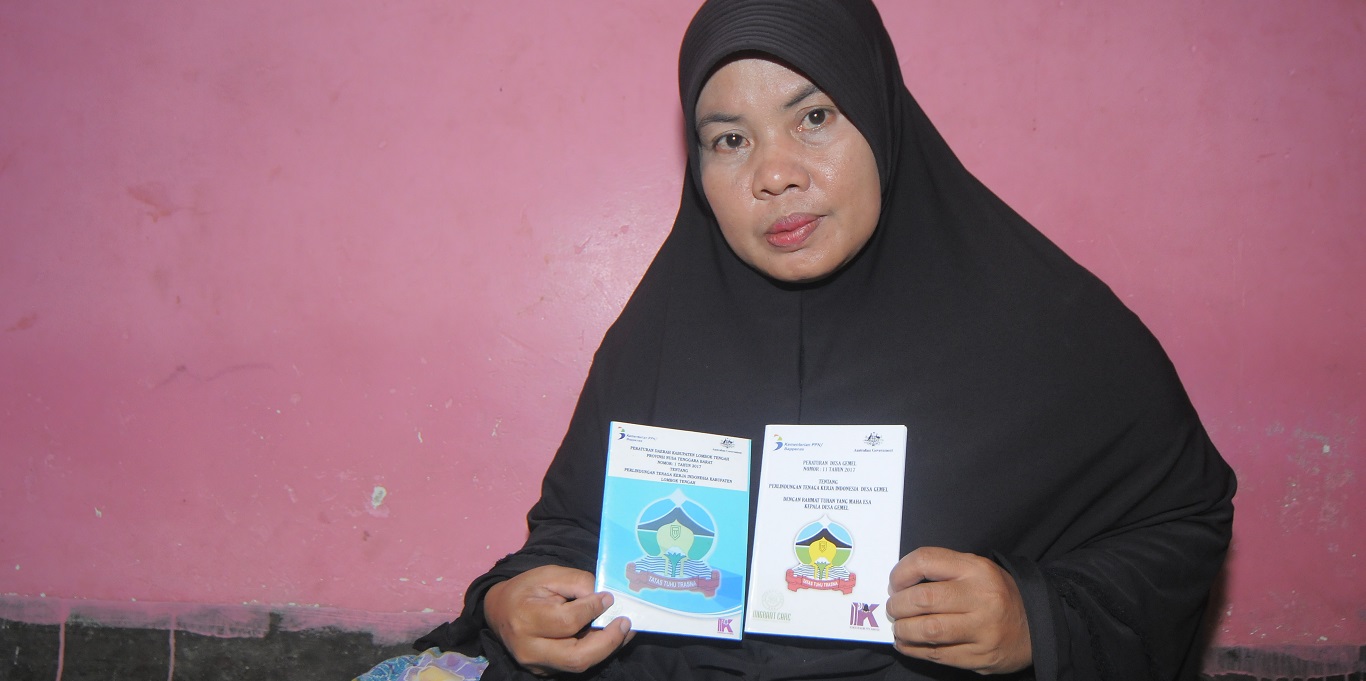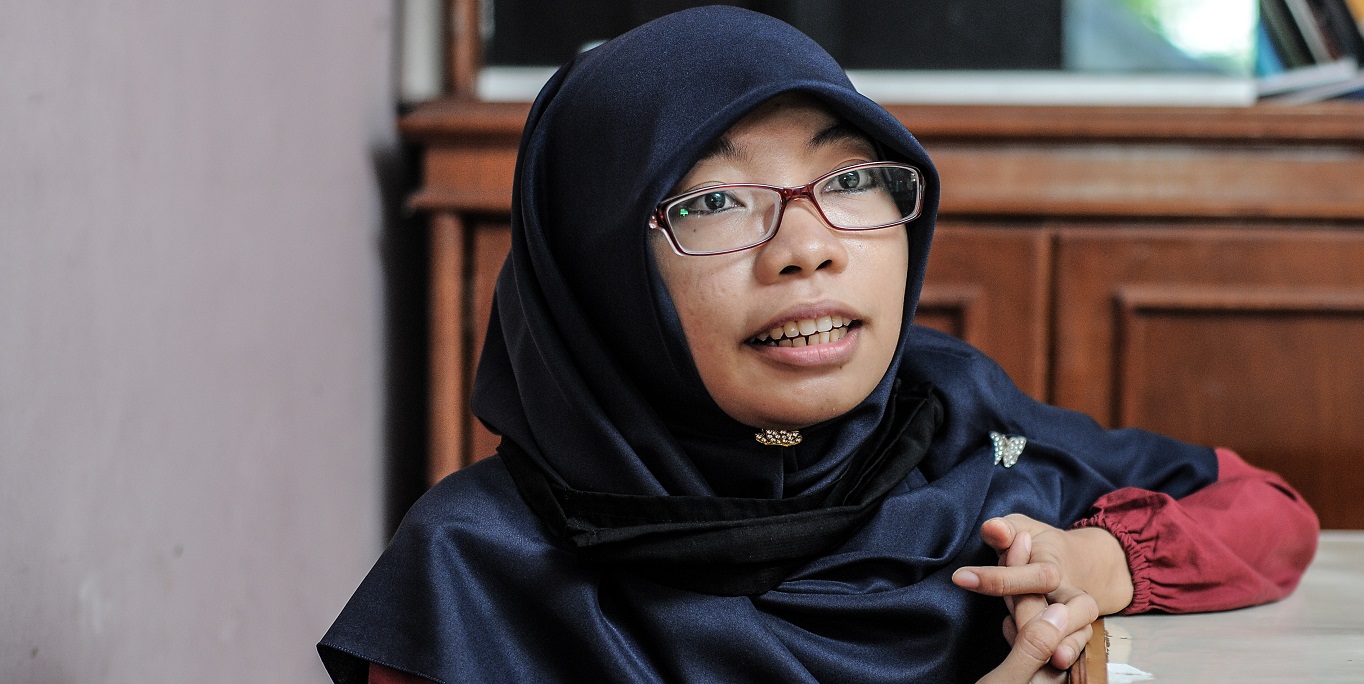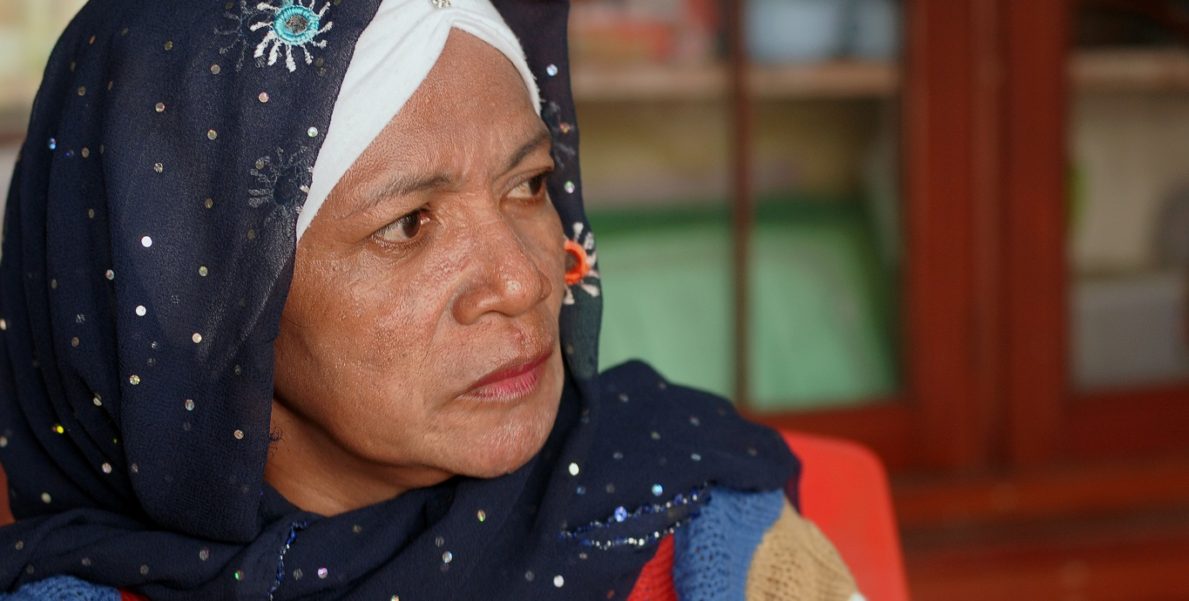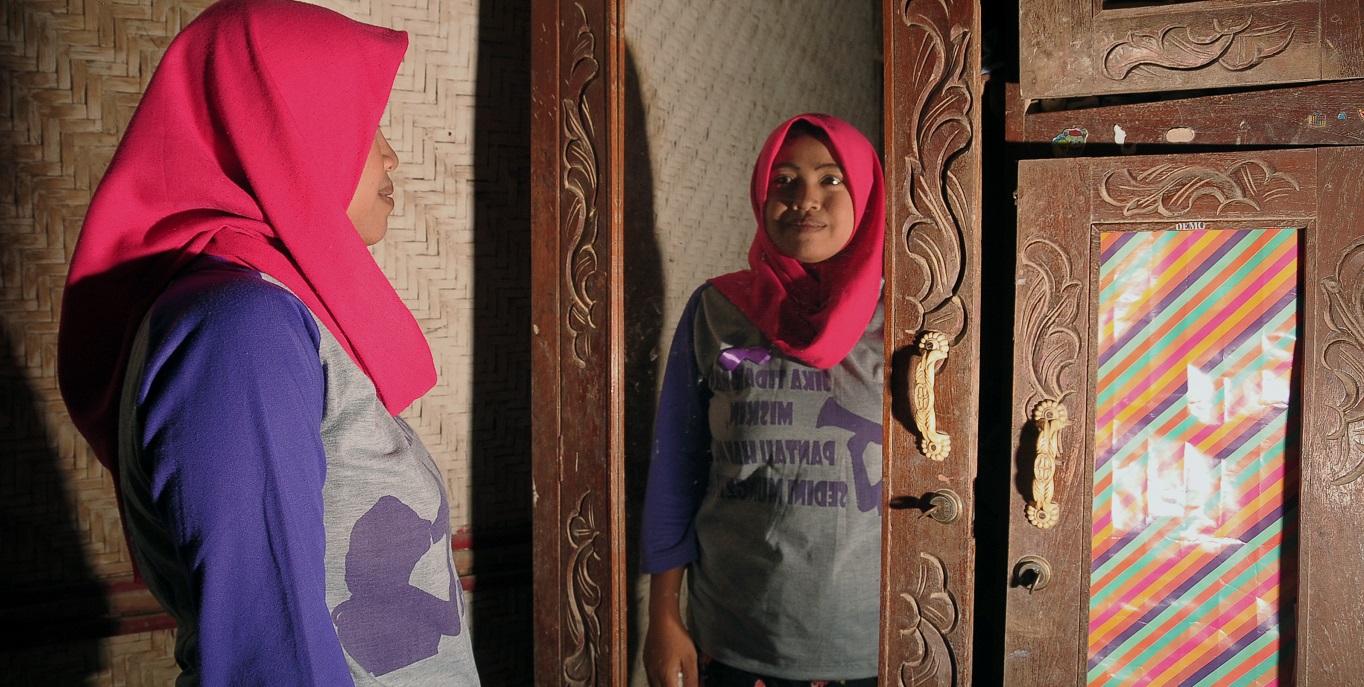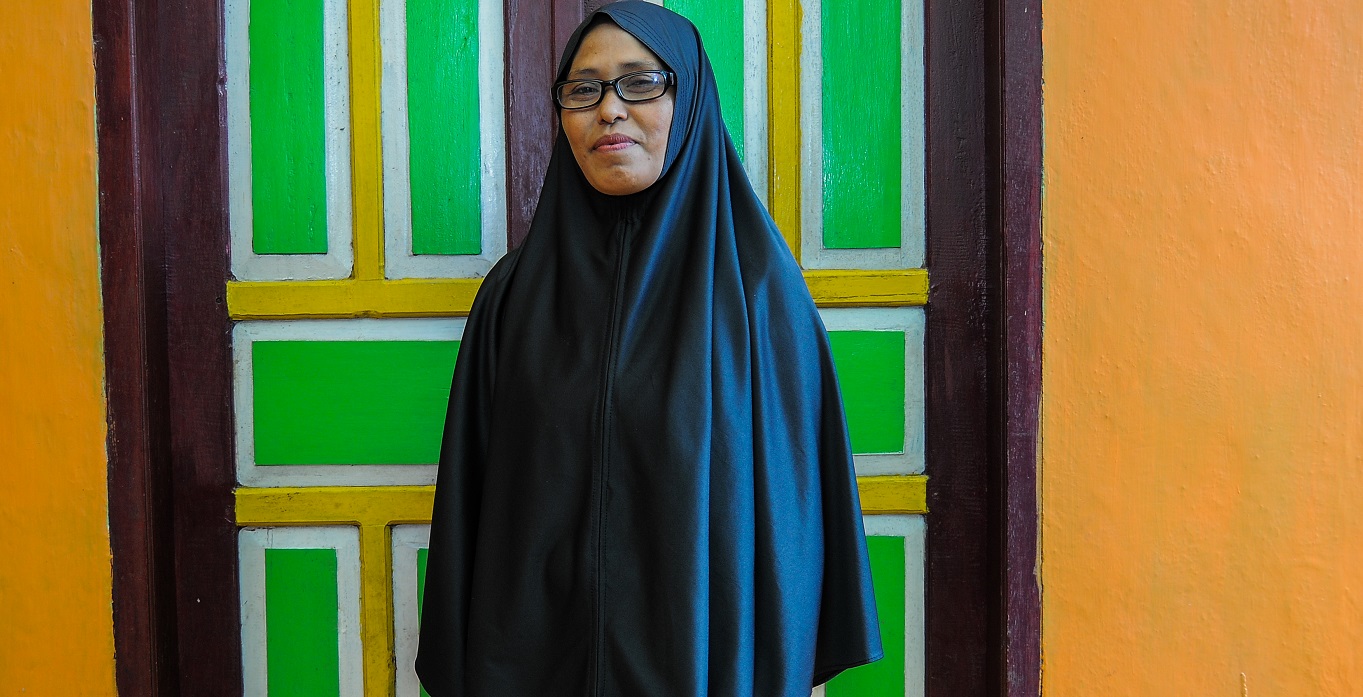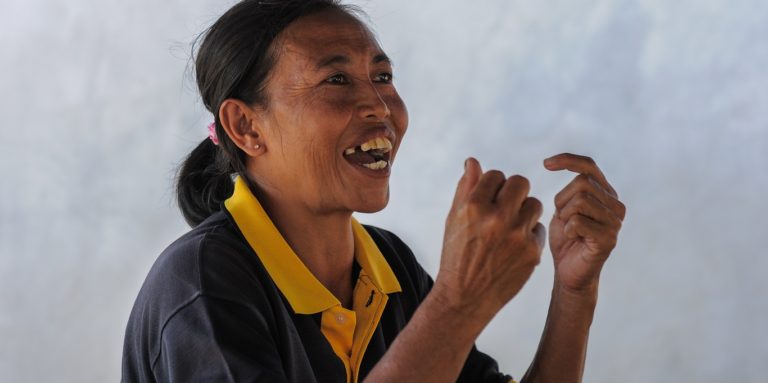Stories
Cahaya Perempuan WCC Promotes Sexual and Reproductive Health Rights through Cultural Performances
31 December 2016Penulis: admin
The Cahaya Perempuan Women’s Crisis Center (WCC) provides assistance to a women’s group called “Impian Perempuan” which is chaired by Karmini (47) and has 20 members. The group has regular activities every month. At each meeting there are discussions and educational activities about sexual and reproductive health rights attended by competent speakers. Some of their activities are supported by the MAMPU Program.
Activities during meetings are not limited to discussions. There are other activities that support their productivity such as processing recyclable waste into handicrafts that have an economic value. An example of these is making bags and other items used daily from food wrappers or other packaging. In addition, the Impian Perempuan Group also runs a savings and loans cooperative. Each participant deposits principal and voluntary savings. Every member can borrow money according to their needs.
Sarimawati (35) Vice-Chairperson of the Impian Perempuan Group said that the presence of the MAMPU program during their regular discussion is very helpful in providing an understanding of sexual and reproductive health rights so that participants can transfer the knowledge gained to others who do not have time to attend the meetings. Lilis Suryani (43) said that an urgent issue in the are where the Impian Perempuan Group operates has been early marriage.
“Many teens have to marry because of sexual promiscuity. Running the MAMPU Program here is appropriate because it provides a forum for counseling, education and advocacy,” said Lilis.
Karmini also revealed that the spreading of understanding about sexual and reproductive health rights by the Impian Perempuan Group is not only carried out through discussions, but also in the form of cultural performances. The group incorporates cultural entertainment into events such as weddings, circumcisions, and those held by government or organizations, in order to further their mission of disseminating information about sexual and reproductive health rights issues.
“For example, in a celebration with traditional or modern music entertainment, we would sing songs which contain moral messages related to sexual and reproductive health rights. It is hoped that guests would be curious and examine the contents of our songs,” said Karmini.
To conduct the cultural performance, they usually cooperate with the hosts or event organizers. They have songs with modified lyrics as well as songs they wrote themselves with messages which raise public awareness about the importance of sexual and reproductive health rights.
“Dissemination of information about sexual and reproductive health rights through cultural entertainment will be more interesting than just doing it through ordinary educational meetings. We are committed to using parties and other events as educational media and will work with the hosts or organizers to provide them with entertainment which furthers the aim spreading understanding of sexual and reproductive health rights,” said Karmini.



